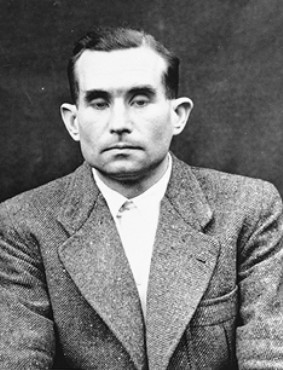Hermann Becker-Freyseng
 Hermann Becker-Freyseng|thumb]] Hermann Becker-Freyseng was a German physician and a prominent figure involved in the Nazi human experimentation during World War II. He was one of the scientists who worked under the Third Reich's regime, contributing to the medical experiments conducted on prisoners in concentration camps. Becker-Freyseng's work primarily focused on aviation medicine, particularly on the effects of high altitude and the development of oxygen equipment for pilots.
Hermann Becker-Freyseng|thumb]] Hermann Becker-Freyseng was a German physician and a prominent figure involved in the Nazi human experimentation during World War II. He was one of the scientists who worked under the Third Reich's regime, contributing to the medical experiments conducted on prisoners in concentration camps. Becker-Freyseng's work primarily focused on aviation medicine, particularly on the effects of high altitude and the development of oxygen equipment for pilots.
Early Life and Education[edit | edit source]
Hermann Becker-Freyseng was born in Germany (the exact date and place of birth are not specified). He pursued a career in medicine, specializing in aviation medicine, a field that was gaining prominence due to the increasing importance of air warfare.
Career[edit | edit source]
During the war, Becker-Freyseng was a leading figure at the Institute for Aviation Medicine in Berlin, where he conducted various experiments related to the survival and performance of pilots under extreme conditions. His research included studying the effects of low oxygen levels, cold, and rapid acceleration and deceleration on the human body.
Nazi Human Experiments[edit | edit source]
As part of the Nazi regime's efforts to advance their military capabilities, Becker-Freyseng was involved in human experimentation that often subjected prisoners of war and concentration camp inmates to inhumane and lethal conditions. These experiments were aimed at testing human endurance and survival limits in relation to aviation and were conducted without the consent of the subjects, leading to many deaths and permanent injuries.
Post-War Trials and Conviction[edit | edit source]
After the war, Hermann Becker-Freyseng was captured by the Allies and stood trial during the Doctors' Trial, part of the subsequent Nuremberg Trials. He was accused of war crimes and crimes against humanity for his involvement in the medical experiments. Becker-Freyseng was found guilty and sentenced to imprisonment. His trial brought to light the ethical violations and atrocities committed in the name of scientific research during the Nazi era.
Legacy[edit | edit source]
The legacy of Hermann Becker-Freyseng is a controversial one. On one hand, his work in aviation medicine contributed to the field's knowledge base. On the other hand, his involvement in unethical medical experiments under the Nazi regime has overshadowed his scientific contributions. The Becker-Freyseng case serves as a stark reminder of the importance of ethical standards in medical research.
See Also[edit | edit source]
Search WikiMD
Ad.Tired of being Overweight? Try W8MD's physician weight loss program.
Semaglutide (Ozempic / Wegovy and Tirzepatide (Mounjaro / Zepbound) available.
Advertise on WikiMD
|
WikiMD's Wellness Encyclopedia |
| Let Food Be Thy Medicine Medicine Thy Food - Hippocrates |
Translate this page: - East Asian
中文,
日本,
한국어,
South Asian
हिन्दी,
தமிழ்,
తెలుగు,
Urdu,
ಕನ್ನಡ,
Southeast Asian
Indonesian,
Vietnamese,
Thai,
မြန်မာဘာသာ,
বাংলা
European
español,
Deutsch,
français,
Greek,
português do Brasil,
polski,
română,
русский,
Nederlands,
norsk,
svenska,
suomi,
Italian
Middle Eastern & African
عربى,
Turkish,
Persian,
Hebrew,
Afrikaans,
isiZulu,
Kiswahili,
Other
Bulgarian,
Hungarian,
Czech,
Swedish,
മലയാളം,
मराठी,
ਪੰਜਾਬੀ,
ગુજરાતી,
Portuguese,
Ukrainian
Medical Disclaimer: WikiMD is not a substitute for professional medical advice. The information on WikiMD is provided as an information resource only, may be incorrect, outdated or misleading, and is not to be used or relied on for any diagnostic or treatment purposes. Please consult your health care provider before making any healthcare decisions or for guidance about a specific medical condition. WikiMD expressly disclaims responsibility, and shall have no liability, for any damages, loss, injury, or liability whatsoever suffered as a result of your reliance on the information contained in this site. By visiting this site you agree to the foregoing terms and conditions, which may from time to time be changed or supplemented by WikiMD. If you do not agree to the foregoing terms and conditions, you should not enter or use this site. See full disclaimer.
Credits:Most images are courtesy of Wikimedia commons, and templates, categories Wikipedia, licensed under CC BY SA or similar.
Contributors: Prab R. Tumpati, MD
